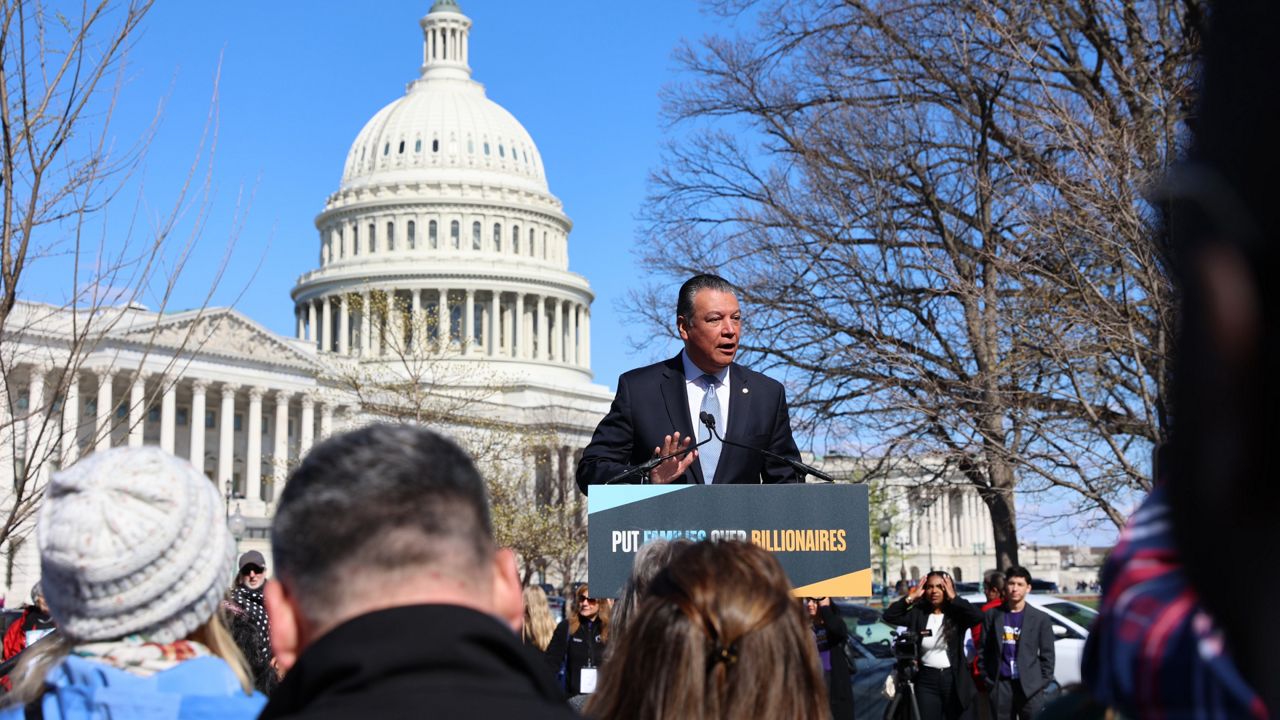The Republican-controlled House of Representatives on Thursday passed a bill that would bar transgender athletes whose biological sex assigned at birth was male from competing on girls or women's sports teams at schools that receive federal funding.
The bill, which passed the House on a 219-203 vote, has virtually no chance of passing the Democratic-controlled Senate. President Joe Biden has vowed to veto it should it reach his desk.
Supporters said the legislation, which would put violators at risk of losing taxpayer dollars, is necessary to ensure competitive fairness. They framed the vote as supporting female athletes disadvantaged by having to compete against those whose gender identify does not match their sex assigned at birth. Opponents criticized the bill as ostracizing an already vulnerable group for political gain.
In a statement of administration policy released by the White House, the Biden administration said it "strongly opposes" the measure, calling it "discriminatory."
"At a time when transgender youth already face a nationwide mental health crisis, with half of transgender youth in a recent survey saying they have seriously considered suicide, a national law that further stigmatizes these children is completely unnecessary, hurts families and students, and would only put students at greater risk," the statement reads. "Discrimination has no place in our nation’s schools or on our playing fields."
"Instead of addressing the pressing issues that families and students face today — such as raising teacher pay, keeping guns out of schools, addressing the mental health crisis our youth face, and helping students learn and recover academically from unprecedented disruptions — Congressional Republicans have instead chosen to prioritize policies that discriminate against children," the statement continues.
Thursday's vote was along party lines, with all Republicans present voting in support and all Democrats present opposing the measure.
The House action comes as at least 20 other states have imposed similar limits on trans athletes at the K-12 or collegiate level.
The bill would amend landmark civil rights legislation passed more than 50 years ago. The amendment would prohibit recipients of federal money from permitting a person “whose sex is male to participate in an athletic program or activity that is designated for women or girls.” The bill defines sex as “based solely on a person’s reproductive biology and genetics at birth.”
The sponsor, Rep. Greg Steube, R-Fla., highlighted the case of Emma Weyant, a resident of his district and a 2020 member of the U.S. Olympic swimming team who finished second in the NCAA women’s 500-yeard freestyle championship last year. She was defeated by Lia Thomas, who had competed for three years on the University of Pennsylvania men’s swimming team before joining the women’s team.
“The integrity of women’s sports must be protected,” Steube said.
Democrats said every child regardless of gender identify deserves the opportunity to belong to a team and that preventing competitors from doing so sends the message that they don’t matter.
Rep. Pramila Jayapal, D-Wash., who has a transgender daughter, said Republicans were cruelly scapegoating transgender children to score political points. She said three-quarters of transgender students report having experienced harassment or discrimination at school and many have considered suicide.
“These bills tell some of the most vulnerable children in our country that they do not belong," Jayapal said. "Shame on you.”
"We need to be working on the issues that matter to families and kids, and to make these children – these children – responsible for all of that," said Democratic Whip Katherine Clark, D-Mass., on the House floor. "To hold them and to incite fear and discrimination and hatred. You should hang your heads in shame."
Rep. Mark Pocan, D-Wis., said most people in the United States don’t know anyone who is transgender and that can create fear for politicians to exploit. The bill, he said, does nothing to address the severe inequities in the resources dedicated to men’s and women’s sports.
He highlighted the stance taken by Gov. Spencer Cox, R-Utah, who last year vetoed a bill banning transgender students from playing girls sports. Cox said: “I struggle to understand so much of it and the science is conflicting. When in doubt however, I always try to err on the side of kindness, mercy and compassion."
Pocan noted that in Utah at the time of the veto there were four transgender players out of 85,000 competing in high school sports, with only one competing in girls sports.
“There’s your raging national problem,” Pocan said. “What’s the Republicans response to this nonexistent issue? Hurt kids for being kids.”
The administration has issued a proposed rule that would prevent any school or college that receives federal money from imposing a “one-size-fits-all” policy that categorically bans trans students from playing on sports teams consistent with their gender identity. Such policies would be considered a violation of Title IX.
Any limits would have to consider the sport, the level of competition and the age of students. Elementary school students would generally be allowed to participate on any teams consistent with their gender identity, for example. More competitive teams at high schools and colleges could add limits, but those would be discouraged in teams that don’t have tryouts or cuts.









